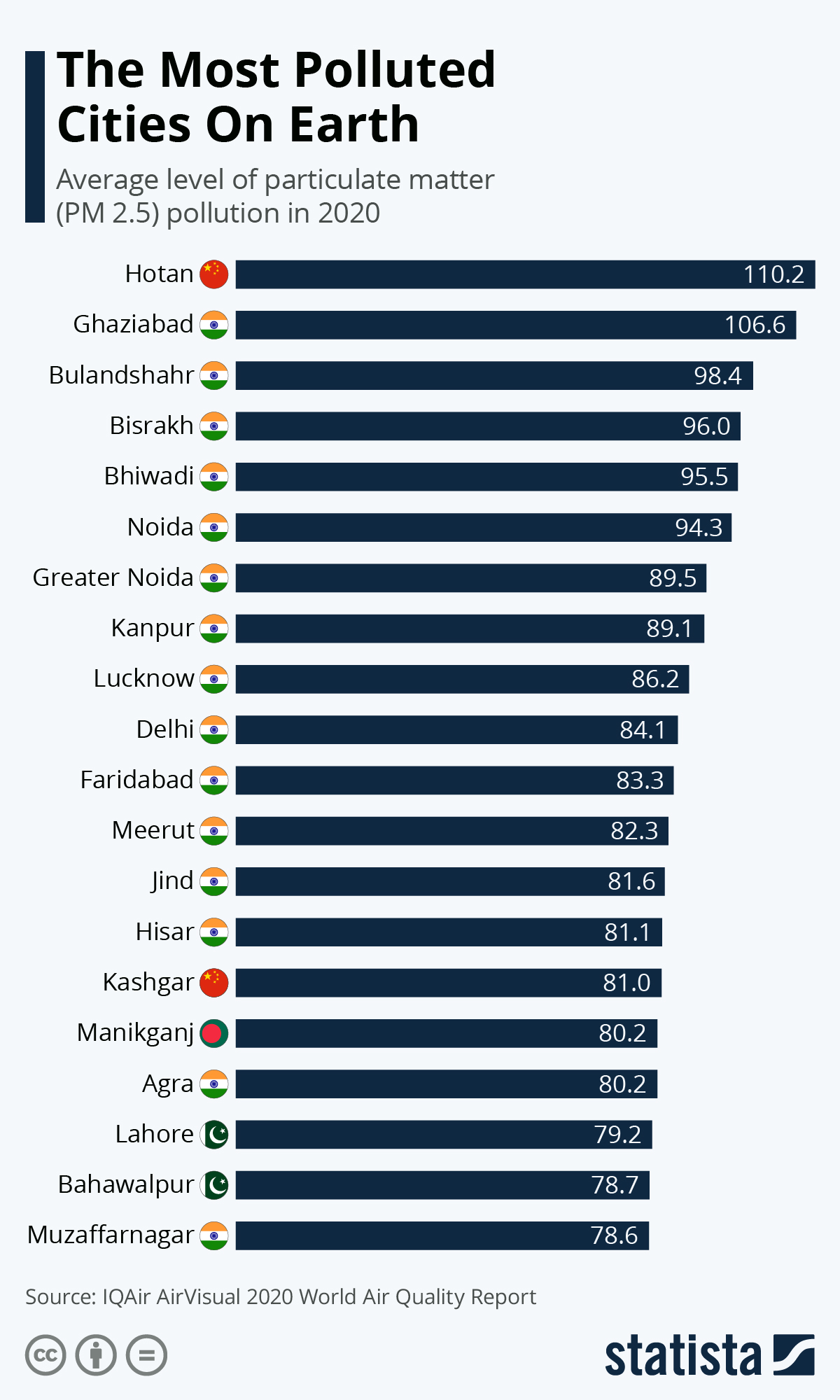The Supreme Court of India, in a case concerning the protection of the Great Indian Bustard, ruled that the right against climate change is a fundamental right. Fundamental rights are rights guaranteed by the constitution (such as the rights to equality and personal freedom) or ‘interpreted’ as such by the Supreme Court (so far, only the right to privacy). They apply to all Indian residents, rather than only citizens, and cannot be removed except by constitutional amendment. The court also set up an expert panel to monitor the protection of the bird, and urged governments to speed up expansion of solar power.
Thats nice, from the country with the most polluted cities (air) on the planet.
Sounds like they are making the right step to change that with this

I was gonna make a joke about Lahore because it definitely made #1 before but I guess they’ve been beat
Hey at least its nice that they said they have the right to………
Not to deny bad air quality, but half the cities listed here are the satellite cities or suburbs of New Delhi.
And here I thought it was spelled “LA Whore”!
(I actually didn’t, but I couldn’t NOT do the dad joke!)
I’m guessing the SC being in Delhi (which has infamously bad air) might have helped focus minds. But climate change is a different environmental problem from particulate pollution, or bustard habitat destruction.
bustard

deleted by creator
deleted by creator
There already are laws dealing with specific issues. So I guess the main advantage of making this a fundamental, rather than just a legal, right would be that it would bind governments. This will support challenges to laws diluting environmental protections, as well as allow lower courts to pass orders on issues where no specific laws already exist.
Uhh huh, cause that’ll help.





